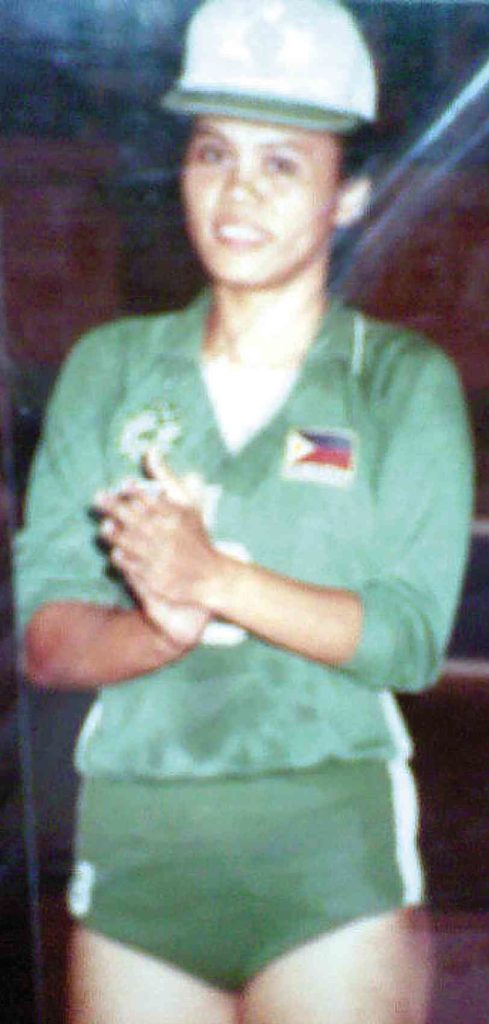Thelma Barina: When we were champions

Thelma Barina in her heyday.
Some volleyball fans, those who are just experiencing the local sport’s “second coming,” are too quick to call her the Rachel Anne Daquis of her generation.
For the record, Thelma Barina-Rojas doesn’t mind being compared to the new face of Philippine volleyball.
“I hear that a lot,” she says. “But I also hear people saying I’m a lot better than her.”
There’s no ground for comparison, to say the least. Daquis, with her all-heart brand of play, media savvy and pretty face, has helped make local volleyball gain the level of popularity it has never enjoyed before.
Southeast Asian dominance
But it was Barina-Rojas, a 5-foot-8 open spiker from Cebu, who laid down the foundation for the country’s dominance in Southeast Asia during her 14-year stint as a national player.
She won four gold medals in the Southeast Asian Games when the Philippines battled Indonesia, not world-ranked Thailand, for dominance in the sport in the region. She helped the country win the gold medal in the 1981, 1985, 1987 and 1993 editions of the Games.
Barina-Rojas took the Most Valuable Player and Best Open Spiker awards in the 1987 SEA Games, and was Best Service Receiver in the 1991 edition.
Gold-medal drought
It’s interesting to note that after the 1993 SEA Games, the Philippines has never won a gold medal again in the biennial competition.
Barina-Rojas, now 56, embraced the sport when she took up accounting at Southwestern University in Cebu City.
She sharpened her all-around volleyball skills enough to land her a spot in the national team as its “captain ball” for many years.
“I’m happy with what I see now in Philippine volleyball,” says Barina-Rojas, now a PE teacher at Makati Gospel School and head coach of its volleyball squad. “I’m very positive that we can bring back our glory days in the sport.”
According to her, one of the national team’s biggest advantages now is its height.
“We have many tall players now who are talented and very smart on the court,” says Barina-Rojas, who married volleyball referee Rodrigo “Buboy” Rojas and bore him three children, namely, Rossinni Tracey, Rodd Tyron and Ross Therese.
She says she always watches games, especially those in the UAAP and NCAA, on TV and follows the sport and how it has progressed from being just a niche sport into a full-blown mainstream spectacle that it is today.
“Back then (in the national team) we treated each other like real sisters,” says Barina-Rojas. “I guess that’s something no coach can easily teach his players.”
She says that kind of relationship among teammates was the key to the country’s volleyball success back then. “We would signal each other (about our intended play) with our eyes and body language,” she recalls.
During those years, especially before the SEA Games, the national team would hold training camps in Japan to strengthen the squad’s chemistry.
“That’s how we learned about Japanese techniques,” she says. “During the training camps we matured as players and as a team. That’s what we need now if we want to become strong in the sport again.”
And that’s coming from somebody who has “been there, done that.”
